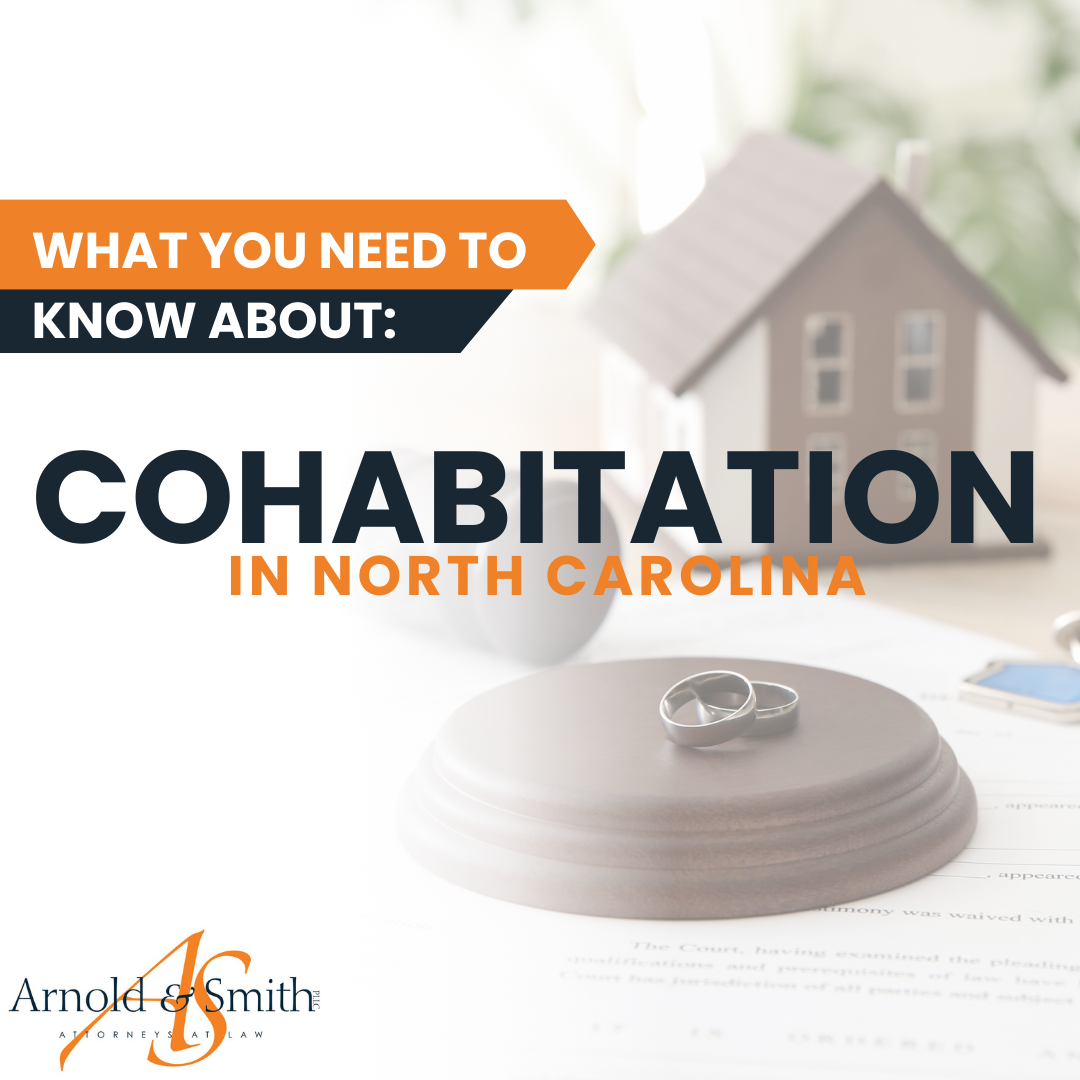 Cohabitation in North Carolina: What You Need to Know
Cohabitation in North Carolina: What You Need to Know
Many couples choose to live together before they get married. The number of people who cohabitate has been rising steadily over the last 30 years. Many couples try living together as a prerequisite to marriage. It is estimated that as many as 75% of married couples lived together before they tied the knot. However, cohabitation does not always result in marriage. There are some things to consider when you decide to live with someone to whom you are not married.
Cohabitation is Not Legal in North Carolina
North Carolina is one of just four states that do not allow cohabitation. In fact, living with someone you are in a relationship with is actually against the law. Luckily, this antiquated law, although still on the books, is not enforced. Couples still live together without the benefit of marriage. However, it is important to note that the courts do not provide assistance to those who were not married when they wish to go their separate ways. Courts handle divorce and the laws are meant for married couples. It may be best, therefore, to seek a cohabitation agreement, which will help you resolve matters in the event you split up.
Board Certified Family Law Specialist Matt Arnold answers the question: “Do I have to be living separately to meet with a lawyer about divorce?”
What is Common Law Marriage?
Since North Carolina does not allow cohabitation prior to marriage, it stands to reason that North Carolina does not recognize common law marriage. Common law marriage means that a couple who live together as a married couple will actually be considered married after  a period of time. In some states, couples who cohabitate for seven or more years are legally married in the eyes of the law. In North Carolina, couples who cohabitate are never legally married and therefore, they will not have any protections that marriage affords. Couples should take steps to protect their assets when they live with a partner without marriage.
a period of time. In some states, couples who cohabitate for seven or more years are legally married in the eyes of the law. In North Carolina, couples who cohabitate are never legally married and therefore, they will not have any protections that marriage affords. Couples should take steps to protect their assets when they live with a partner without marriage.
Protect Your Assets When Cohabiting
When people cohabitate, they often begin to combine their property and assets. You will want to take steps to protect your assets in the event that your relationship comes to an end. You should consider keeping your finances separate and maintaining your own bank accounts until you get married. One good way to protect yourself is with a cohabitation agreement. This is essentially a contract between you and your partner that defines what belongs to whom and how you will divide property if you stop being a couple.
A cohabitation agreement can also define such things as who will remain in the house or apartment and how specific items of property will be divided, among other things. It is particularly essential if you want to make a large purchase with your partner, such as buying a house together. You can have a cohabitation agreement with a romantic partner or even with anyone with whom you share a home. If you want to utilize a cohabitation agreement it is often a good idea to seek legal guidance to be sure the contract covers your needs.
If you are considering cohabitation or marriage and would like to discuss cohabitation or prenuptial agreements call us at Arnold & Smith, PLLC at (704) 370-2828 to request a consultation.
The family law practice group at Arnold & Smith, PLLC includes two Board-Certified Family Law specialists and one Child Welfare Law specialist, as well as several attorneys with many years of family law experience that are committed to providing a powerful voice to individuals facing the often-tumultuous issues in this area of law. The range of issues our family law clients may be facing include pre- and post-nuptial agreements; separation agreements; post-separation support; child support (both temporary and permanent); absolute divorce; divorce from bed and board; military divorce; equitable distribution of assets; child custody (both temporary and permanent); retirement benefits and divorce; alimony and spousal support; adoption; and emancipation. Because this area of the law is usually emotionally charged and complicated, the family law attorneys at Arnold & Smith, PLLC act with the utmost dedication to ensure that each client understands his or her options, and then act to achieve the best result possible for that client’s particular situation.
Source:
common law marriage | Wex | US Law | LII / Legal Information Institute (cornell.edu)
cohabitation | Wex | US Law | LII / Legal Information Institute (cornell.edu)
Image Credit:
https://www.freeimages.com/photo/house-for-sale-1236738
See Our Related Video from our YouTube channel:
https://www.youtube.com/user/ArnoldSmithPLLC?feature=watch
See Our Related Blog Posts:
Different Ways To Value A House :: Equitable Distribution and Property Division Lawyers and Attorneys in Charlotte, NC
 Charlotte Divorce Lawyer Blog
Charlotte Divorce Lawyer Blog


